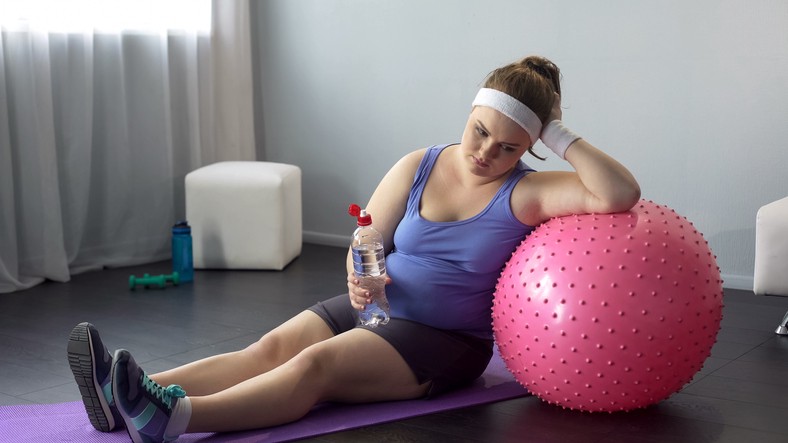
When you exercise, your body burns more calories than usual. EPOC is the post-exercise effect. It can last between two and ten hours. It all depends on what type of exercise is being done. An intense workout may produce the same result as one that is moderately intense. A hard, two-hour run may burn forty to sixty calories. But jogging moderately slowly may not exhaust your muscles.
HIIT increases calories burned for up 24 hours
The effects of HIIT are well known, as they stimulate your body's fat-burning mechanisms. After a workout, HIIT can increase your metabolism and torch calories up to 24 hours. Colorado State University used a metabolic chamber for carbon dioxide and oxygen measurement to determine the impact of HIIT in calorie loss. Their results revealed that HIIT can increase post-workout calorie loss by up to 24 per cent.
HIIT workouts include sprinting (brisk walking), running, cycling, and jumping. You can also do plyometrics to increase your heart beat. HIIT exercises are effective if you do not have any equipment, however. You should push your heart to its maximum, not the maximum speed. You will see results that last for a long time if you push your heart to its limits.

Weightlifting can boost calorie burn by up to 3 hours
Many people choose weight lifting to be their daily exercise. This form is known to increase metabolism, which can help you burn more calories in the gym and afterwards. In order to make weightlifting more effective you must lift heavier weights. Also, you need to work harder to increase your muscle mass. Two hormones are released when you lift heavy weights: cortisol (the stress hormone) and human growth hormone (the hormone). These hormones will help you burn calories even after you exercise, and can even help you lose weight when you're not working out.
For a woman of average build, a 30-minute weight training session can increase calories by as much as 180 calories. These numbers are based upon the Harvard medical school’s recommended exercises. The number of calories you burn will depend on your body weight, intensity and type of exercise. Bicep curls can burn more calories than compound exercises like deadlifts and bench press.
Exercise causes excess post-exercise oxygen consumption (EPOC)
Excessive post-exercise oxy consumption is the way your body uses extra energy after intense exercise. This process can last anywhere from 3 to 72 hours and your fitness level and intensity will determine how much energy you need. Afterburn, also known post-exercise as oxygen consumption excess, refers specifically to burning fuel after a workout to return your body to its resting state.
The afterburn effect is a natural phenomenon that occurs right after a workout. This is the body's natural way to recharge its energy stores. However, the effect of afterburn can last anywhere between 15 and 48 hours. Increased caloric expenditure is responsible for excess post-exercise oxygen intake. The intensity and duration exercise is key factors in excess oxygen consumption.

Resistance training improves calorie loss during and following a workout
One study that was done in 2013 examined the changes in molecular architectures in fat cells after resistance training. Researchers have been focusing on the health and well-being of muscle cells for years. But, recently, their attention has shifted to fat. Some researchers have speculated that the two types of tissues are engaged in a chat after a workout. It's not easy to determine which type will burn more calories.
The intensity of resistance-training exercises directly correlates with the calories burned. A higher intensity resistance training session will result in a greater calorie burning during and after the workout. This is because resistance-training exercises test the muscles and the aerobic system. Two sets of supersets may be enough to burn around eight to nine calories each minute for a man doing weight-lifting exercises. Also, a man who did two supersets, five-rep exercises per minute, alternated between 60-180 secs of cardio, will burn more calories than a woman who does the same exercise twice. Circuit training, which alternates cardio and resistance training, is another method. The results are similar: resistance-training increases caloric expenditure before, during, and after a workout.
FAQ
How does intermittent fasting impact my sleep?
Yes, intermittent fasting does affect your sleep. You may notice an increase in hunger hormones if you skip meals. You may wake up more often at night because of this.
Experts recommend skipping breakfast. Instead, experts recommend eating light snacks before bed.
If you still wake up hungry after this snack, you can consume a small meal just before going to bed.
Don't overeat. If you do this, you might gain weight instead of losing it.
How long does it usually take to lose weight
Weight loss takes time. It usually takes six to eight months to lose 10%.
You should not expect to lose weight overnight. Your body will take time to adjust to changes in diet.
This means that you should gradually change your diet over several days or weeks.
Fad diets don't work and you should get off them. Instead, try to change your daily routine.
Consider, for instance, that you often eat unhealthy snacks late at the night. You need to reduce this behavior.
Instead, you should eat healthier meals earlier in the evening. This will help you avoid snacking at night.
Water is essential for your body. Water keeps you hydrated and prevents your body from becoming dehydrated. Dehydration makes you feel tired and sluggish.
It is important to drink plenty of water throughout each day to stay energized.
Doing things that are relaxing can help you reduce stress. You could spend quality time with your loved ones.
You can also listen to music or read books.
These activities can help you to unwind after stressful situations. They can also help improve your moods and self-esteem.
If you want to lose weight, consider your health first.
Your physical fitness level is an indicator of your overall health. Regular exercise and proper nutrition are key to getting fit.
How often do people fast?
Most people who follow a ketogenic diet fast once per week. Some people fast twice a week. Others fast three-times per week.
There is a variation in the length of fasts. Some people fast for 24 hours, whereas others fast for 48 hours.
Some people can even travel for up to 72 hours. However, extreme cases like these are rare.
Statistics
- Among women, the increase in metabolic rate was nearly 4%, or 50 more calories per day (14Trusted Source (healthline.com)
- One study in 9 active men found that HIIT burned 25–30% more calories per minute than other types of exercises, including weight training, cycling, and running on a treadmill (18Trusted Source (healthline.com)
- According to a study sponsored by the American Council on Exercise, a person weighing around 140 pounds (64 kg) would burn 108 calories at a 30-minute beginner's Pilates class or 168 calories at an advanced class of the same duration (26). (healthline.com)
- One 6-month study showed that simply doing 11 minutes of strength-based exercises 3 times per week resulted in a 7.4% increase in metabolic rate, on average. (healthline.com)
External Links
How To
How to lose weight by exercising
Exercise is one of the best ways to lose weight. Many people do not know how they should exercise. Cardio exercises like running, cycling and swimming should be combined with strength training exercises like pulling ups, pushups and squats. The most effective way to lose weight is to combine these two types of exercises together. If you want to start exercising, then try to find some friends who are willing to join you in your journey. You have two options: you can join a gym or just walk around your neighborhood. You need to keep doing the same thing no matter what kind of activity. It's very easy to get off track when you first start working out, so don't give up if things aren't going well right away. Keep going.